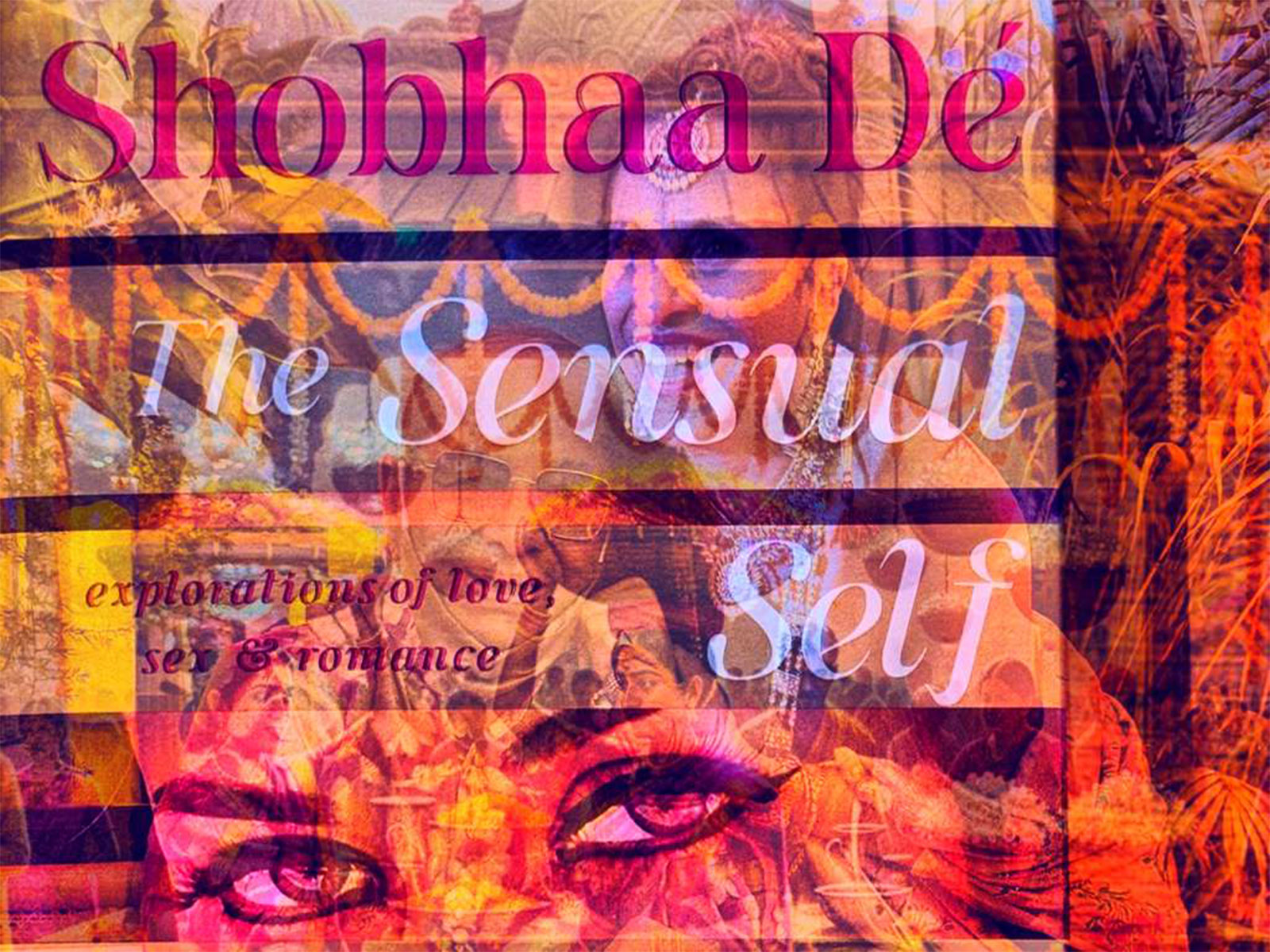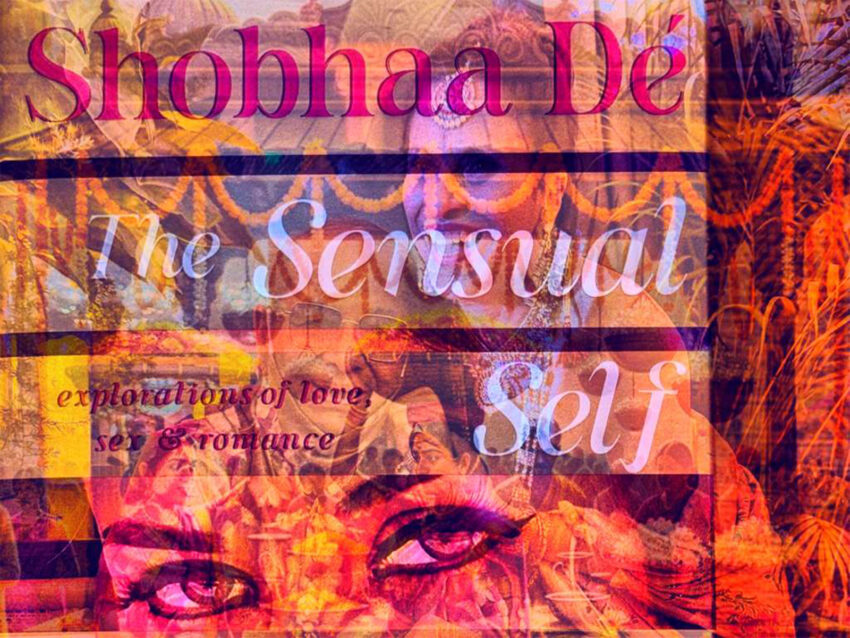
New Delhi [India], October 14 (ANI): Shobhaa De’s The Sensual Self is not a book; it is a bloom — nocturnal, fragrant, unafraid of its own scent. Like raat ki rani unfurling at dusk, it intoxicates slowly, spreading across your mind until your own pulse begins to hum to its rhythm. De writes with the shimmer of jasmine oil and the sting of sandalwood smoke — her sentences supple, scented, and scorching, her silences as important as her speech. She invites you to “abandon good sense,” to “ditch the rulebook,” and instead “own your sensuality,” no matter your age or ache.
At seventy-seven, she has done what few writers dare — she has made pleasure a philosophy, not an apology. This is a book that glides from the boudoir to the ghats of Banaras, from silk to skin, from body to being. De’s pen sashays as she does — sometimes in stilettos, sometimes barefoot. The pages pulse with a painter’s patience and a poet’s precision: she speaks of saris that breathe, bodies that remember, lips that long. She is a woman at peace with the mirror and in love with the mystery of her own making.
And yet The Sensual Self is more than memoir. It is a map — across raags, fabrics, fragrances, and philosophies. De quotes Kalidasa as if he were a contemporary and listens to Maria Callas as if Puccini were writing for her alone: “To hear Callas sing Puccini is to hear angels making love.” She moves from Bhairavi to Lavani, from mujra to Mick Jagger, from the ghats of Varanasi to the gilded boudoirs of Mumbai, threading East and West in seamless silk.
And then, like a sudden waft of chaampa, she brings in the Japanese — sakura and stoicism. Watching La Grande Maison Tokyo, she pauses over a wizened Japanese chef who tells his protege, “People get old… palates change.” De sees herself mirrored in his stoic grace, his quiet acceptance of impermanence: “Palates change! For food. For sex. The palate never forgets!” She is a gourmand of life itself, tasting it all — the bitter, the burnt, the beautiful — with the same appetite.
In another luminous passage, she writes of sakuras — “Fragility! Impermanence! Beauty! We are all sakuras. Sakuras who love. Sakuras who die.” It’s a moment of exquisite simplicity that echoes the mono no aware of Japanese poetics — the pathos of things, the ache of knowing beauty will not last, and the grace of embracing it anyway.
She slips into French as effortlessly as she drapes her brocade saris, her linguistic lilt shimmering through the text like perfume. Her works, translated into French, German, Hungarian, Italian, Korean, Portuguese, Russian, Spanish, and Turkish, carry her voice to continents that may never have known the scent of mogra or the heat of masala chai. And yet her themes — longing, loss, laughter — are universal. She reminds the French of Colette’s boldness, the Japanese of Tanizaki’s tenderness, and Indians of their own buried sensual wisdom.
In a world that prizes prudence over passion, De dares to be decadent. Her writing is not rebellion against morality but against mediocrity. “Lovers are voyeurs,” she writes. “They feast on you with their eyes… Undressing is a fine art. Dressing up is easy.” In these lines she distills decades of observation into a truth as sharp as a diamond: sensuality lies in attention, not excess; in how one lifts a sari pallu, not how quickly one drops it.
Her chapter on Courting turns foreplay into philosophy: “Try syncing lovemaking to the raag… each act must respect the hour of the day — Bhairavi at dawn, Yaman Kalyan at dusk.” Desire becomes discipline; pleasure becomes prayer. Her chapter Saris and Souls transforms fabric into memory — a mother’s pleats, a daughter’s pallu, each fold carrying the fragrance of time. “The sari blouses — style and colour — didn’t change… always white poplin, hand-washed at home.” Through these tiny details De turns nostalgia into narrative, and everyday gestures into erotica.
She quotes, she provokes, she preaches without preaching. The wit sparkles — “Stop settling for boring dal-chawal sex when life can offer spicy, finger-licking chicken chilli fry.” The wisdom cuts deeper — “Love that doesn’t ache is just polite affection.” De’s is the language of liberation disguised as laughter.
The Sensual Self reads like a conversation between Colette, Kama, and Coco Chanel — a text that glows with global grace. It evokes the night garden of Indian femininity — raat ki rani blooming under a full moon, mogra scenting the air of a long-forgotten courtyard, tuberose wreaths on a lover’s wrist, the faint stain of rose oil on a letter unopened.
And woven through it all, quietly luminous, is Mr De — her partner, her mirror, her muse. He is the star who steadies the story, the moon against which her light gleams brighter. He appears not as a prop but as a presence — patient, passionate, profoundly alive. He is the calm after her chaos, the humour that balances her heat, the man who, in her words, “knows the difference between touching and holding.” Their marriage — elegant, egalitarian, electric — is the book’s unspoken epicentre, its pulse and proof that companionship can be as sensual as first love. Through him, De shows that true intimacy is not conquest but continuity; not ownership but ongoing wonder.
It is this texture — this tactile, timeless sensuousness — that makes the book cinematic. One can almost see her at Mira’s seaside mansion, “bathed in golden light,” the aubergine brocade draped over her shoulders, her reflection shimmering in a long mirror. She looks at her younger self — the girl on a Ganga boat, bouffant high, eyes defiant — and smiles: What’s time, anyway?
Time, for De, is not linear. It loops like the weave of a Banarasi sari, threads of memory and meaning intertwining. She embodies that rare grace — the ability to laugh at loss and still find beauty in its ashes. In her world, even heartbreak gleams. Even rejection is rhythm. Even age is fragrance.
As Diwali draws near, her book feels like the perfect diya — small yet blinding, delicate yet enduring. It reminds us that to light a lamp is also to reveal a shadow; that to feel deeply is to live fully. De’s manifesto for sensual living transcends geography, gender, and generation. It is for anyone who has ever wanted to feel seen, touched, desired, or simply alive.
This Diwali, The Sensual Self is not just a book — it is an awakening. A jasmine-scented rebellion. A celebration of the courage to love without shame, to age without apology, to burn without fear. It is a hymn to the body, a haiku to the soul, and a handbook for the heart.
In a world forever chasing light, Shobhaa and Mr De together teach us something gentler and greater — how to become it. (ANI/Suvir Saran )
Disclaimer: Suvir Saran is a Masterchef, Author, Hospitality Consultant And Educator. The views expressed in this article are his own.


